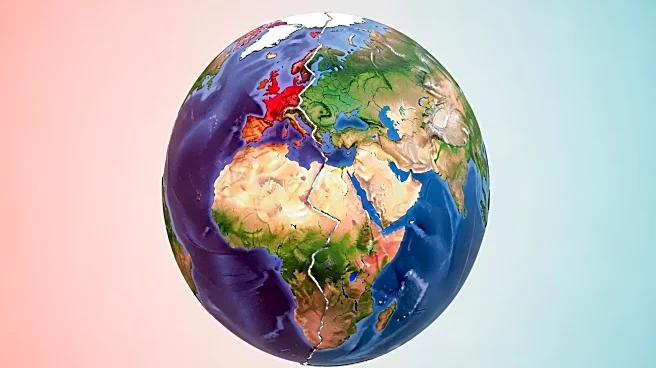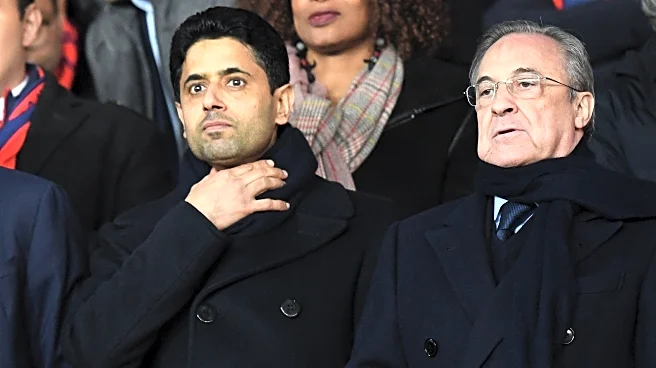What's Happening?
Pro-Palestinian protesters gathered in Oslo, Norway, ahead of the World Cup qualifier between Norway and Israel, marching from the city center to Ullevaal Stadion. Approximately 1,000 protesters participated, carrying banners related to the ongoing conflict in Gaza. The demonstration remained peaceful, with some protesters staying outside the stadium as the match commenced. Inside the stadium, a Palestinian flag was displayed, and a banner reading 'Let Children Live' was unfurled. The protest coincided with heightened security measures, allowing only 3,000 spectators into the stadium. The event follows recent geopolitical tensions, including a peace deal between Israel and Hamas, as announced by U.S. President Donald Trump. The match is part of a series of qualifying games, with Israel scheduled to play Italy next in Udine.
Why It's Important?
The protest underscores the ongoing geopolitical tensions surrounding Israel's participation in international events. Such demonstrations reflect broader societal and political sentiments regarding the Israeli-Palestinian conflict. The involvement of international sports events in these protests highlights the intersection of politics and sports, potentially influencing public perception and diplomatic relations. The protest in Norway is part of a larger pattern, with similar actions occurring in Italy and Indonesia, where Israeli athletes face exclusion from competitions. These developments may impact Israel's ability to participate in global sports, affecting its international representation and relations.
What's Next?
Israel's upcoming match against Italy in Udine may face similar protests, as indicated by recent demonstrations at the Italy squad's training center in Florence. UEFA's consideration of suspending Israel from competitions due to the conflict adds uncertainty to Israel's future participation in international sports. The geopolitical climate may lead to increased scrutiny and potential exclusion of Israeli teams from events, affecting their competitive opportunities. Stakeholders, including sports organizations and political leaders, may need to address these tensions to ensure fair participation and maintain diplomatic relations.
Beyond the Headlines
The exclusion of Israeli athletes from international competitions raises ethical questions about the role of sports in political conflicts. It challenges the principle of sports as a neutral ground, potentially setting precedents for future exclusions based on geopolitical issues. The protests and exclusions may influence public opinion and policy decisions, affecting cultural and diplomatic exchanges between nations. Long-term, these developments could reshape the landscape of international sports, prompting discussions on the balance between political activism and sportsmanship.











